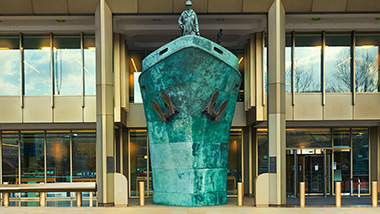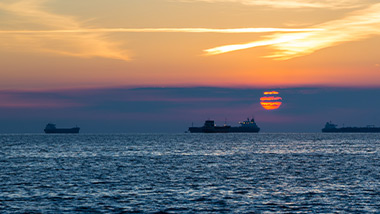The industry is a key contributor to the IMO, collaborating and bringing knowledge and expertise which to inform decision-making. The Assembly and the Council are supported by intergovernmental organisations holding observer status, and international non-governmental organisations holding consultative status
The structure of the IMO encompasses, under The Assembly and The Council, a wide range of committees, each with a specific focus on the maritime industry. Organisations, in collaboration with member states, play a role in these committees.
Intergovernmental organisations (IGO)
The IGOs collaborating with the IMO is primarily specialised entities from the maritime sector or regional bodies engaged in maritime activities. These organisations frequently collaborate with their respective Member States within the national political framework, and as a result, they also share views on marine environmental issues being discussed by the IMO. Observers have limited participation rights. They are allowed to participate and share opinions at meetings, but they cannot vote or propose resolutions. There are 66 intergovernmental organisations which have observer status with the IMO.
For example, the European Commission operates as an observer organization in the IMO. The European Union's impact on their member countries is substantial, given that regulations passed by the European Union tend to be mandatory for its Member States. As a result, the goals of The European Green Deal and the Fit for 55 initiatives underpin the stance of European nations in their involvement with the IMO. Other examples on IGOs could be Organisation of American States (OAS), International Transport Forum (FIT) or World Tourism Organisation (UNWTO).
Explore the full list of intergovernmental organisations in IMO here
Following the IMOs announcement of the revised strategy, the EU welcomed the new ambitions and objectives:
“The levels of ambition and indicative checkpoints take into account the lifecycle GHG emissions from marine fuels with the objective of reducing emissions within the boundaries of the energy system of international shipping, thereby preventing a shift of emissions to other sectors. The Commission welcomes in this regard the approval of the guidelines on the lifecycle GHG intensity of marine fuels, which provides a solid foundation for the years to come and guarantees that GHG emissions are reduced.” - European Commission press release.
Learn more about The European Green Deal and Fit for 55 in the articles below.
Learn more:







